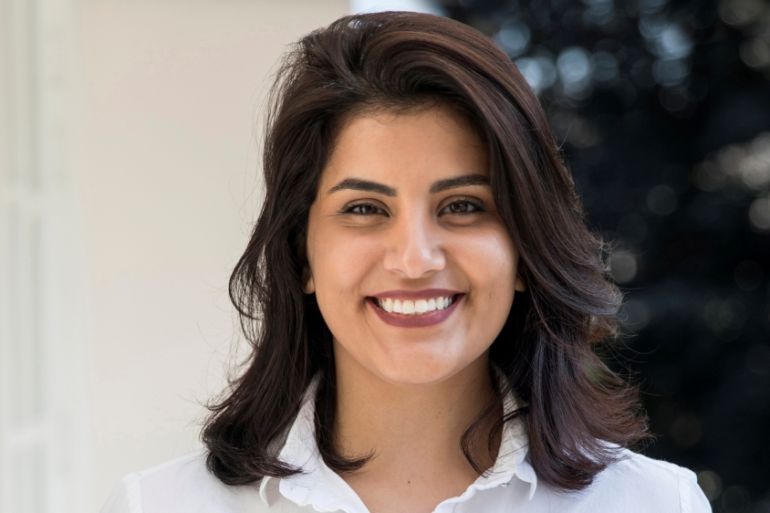‘Alarming’: UN experts worried by health of jailed Saudi activist
Al-Hathloul, arrested in 2018, has been on hunger strike for a week over conditions of her prolonged detention.

The health status of jailed Saudi women’s right activist Loujain al-Hathloul, who has been on hunger strike since last week, is rapidly worsening, UN experts said, calling for her “immediate” release.
Al-Hathloul, 31, was arrested along with about a dozen other female activists in May 2018, just weeks before Saudi Arabia lifted a decades-old ban on female drivers.
Keep reading
list of 3 itemsSaudi Arabia rebuked at UN over Jamal Khashoggi killing, abuses
Dozens of legislators urge US to boycott Saudi Arabia-hosted G20
She began refusing food on October 26. Al-Hathloul went on a week-long hunger strike in August over the conditions of her prolonged detention.
Her deteriorating health was “deeply alarming”, the UN Committee on the Elimination of Discrimination against Women (CEDAW) said in a statement on Thursday.
The committee, made up of 23 independent experts, also voiced serious concern “by recent information concerning the conditions of Ms al-Hathloul’s prolonged detention, including reports that she is not allowed regular contact with her family”.
Some of the activists arrested with her have been provisionally released, while others remain in detention amid what campaigners call opaque court trials over charges that include contact with foreign media, diplomats and human rights groups.
The pro-government media branded al-Hathloul and other jailed activists as “traitors” and her family alleges she faced sexual harassment and torture in detention, including electric shocks and waterboarding.
Saudi authorities vigorously deny the charges.
Three months before her arrest, al-Hathloul met with CEDAW to share her observations on the state of women’s rights in Saudi Arabia.
The rights experts voiced outrage that the national security-related charges against her were in part justified by her engagement with the committee.
“Human rights defenders have the right to communication with the UN, and they should do so free from fear or retribution of any sort,” they said.
Saudi Arabia had assured the committee in February this year that al-Hathloul’s trial would take place a month later, but the hearing has been postponed several times, the statement added.